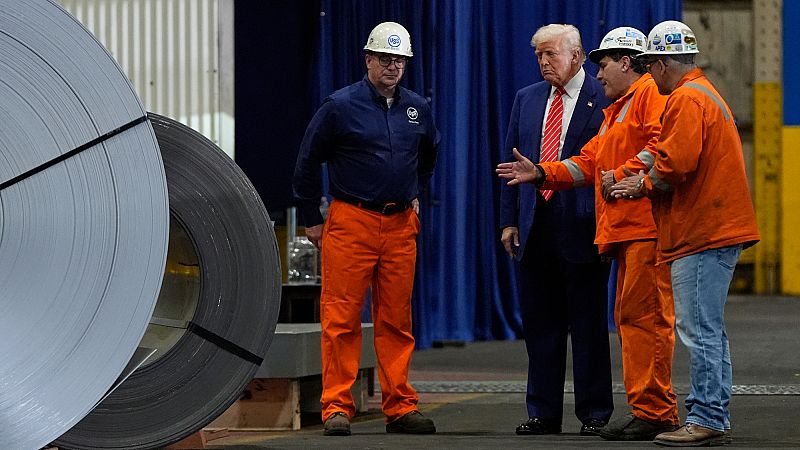
Washington has doubled its tariffs on steel and aluminium to 50% as President Donald Trump seeks to exclude foreign producers from the US market.
The directive, which the White House shared on X, claimed that the rise would “provide greater support” to US industries, and would “eliminate the national security threat” posed by imported steel and aluminium.
“Nobody is going to get around that,” Trump said when first discussing the raise at a rally in Pennsylvania last Friday. “At 25%, they can sort of get over that fence. At 50% they can no longer get over the fence.”
While Washington claims that excluding foreign producers will support employment in the US, critics argue that it also jeopardises domestic jobs. As materials become more expensive and the cost of production rises, US firms may let go of staff to trim costs.
It’s estimated that steel and aluminium tariffs introduced during Trump’s first term in 2018 destroyed 75,000 US manufacturing jobs, while creating 1,000 extra jobs in the steel industry.
Wednesday’s tariff hike also creates added friction with international trade partners ahead of Trump’s 9 July deadline, when his so-called “reciprocal” tariff pause will end. In April, Trump temporarily halted proposed duties on a number of countries. The president’s team at the time said they were aiming for “90 deals in 90 days”.
So far, the US has only managed to secure a trade deal with the UK, meaning that British steel and aluminium producers will continue to pay a rate of 25% — at least for now.
The president’s tariff proposals also faced a significant legal blow last week. The New York-based Court of International Trade and a federal court in Washington ruled that Trump did not have the authority to impose tariffs on nearly every one of the world's countries — a battle predicted to end up in the Supreme Court.
Steel and aluminium levies were not part of that ruling, although Washington will likely want to show its determination to push ahead with duties.
As the latest hike comes into effect, EU Trade Commissioner Maroš Šefčovič will meet his US counterpart Ambassador Jamieson Greer on Wednesday on the sidelines of an OECD meeting in Paris.







